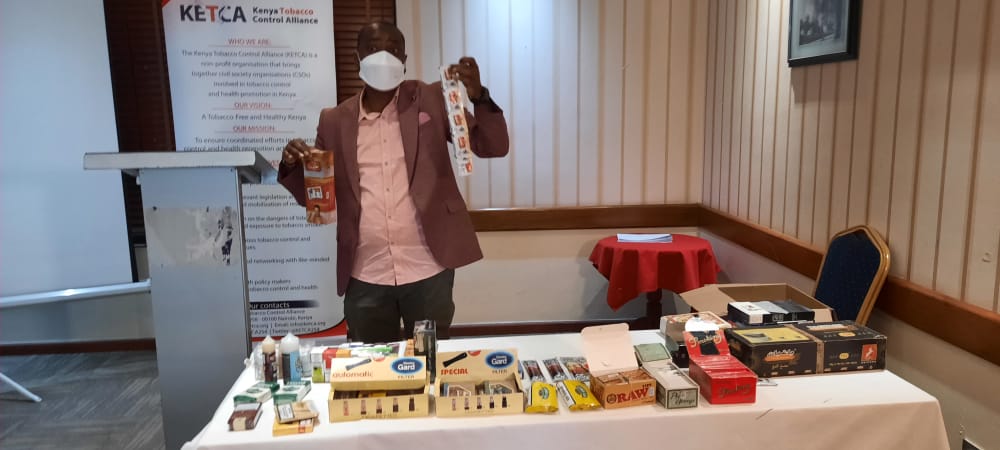Kenya Tobacco Control Alliance wants Ministry of Health to ban sale of nicotine pouches

By Mourice Seretta
Health promotion advocates have formally petitioned the government to uphold the current ban on nicotine pouches and ignore the latest by one manufacturer to allow them back accompanied by a tiny warning sign.
The request by BAT, sent to Health Cabinet Secretary, Mutahi Kagwe, on September 7, 2021, asks that their nicotine pouches, brand names LYFT or Velo, be allowed back into the market with a tiny health warning covering only 10 per cent of the packet.
‘The manufacture, distribution and sale of our LYFT product has been temporarily ceased in the market since October 2020. Our resumption of factory operations and sale of LYFT in Kenya hinges on the provision of appropriate health warnings for the product,’ says the letter by BAT’s Managing Director, Crispin Achola.
Achola added, ’We therefore kindly request that the Cabinet Secretary exercise this discretion and direct that oral nicotine pouches such as LYFT (also known as Velo) apply text health warnings in the form and format as shred in this letter and as shown in the pictures in the appendix.’

Health Cabinet Secretary Mutahi Kagwe banned the sale of nicotine pouches in October 2020 after discovering that they had been illegally registered as medicine by the Pharmacy and Poisons Board.
The Kenya Tobacco Control Alliance (KETCA), which is the umbrella organization for all organizations involved in tobacco control and health promotion in Kenya, advised the Health CS to stick to the Kenya Tobacco Control Act and The WHO’s Framework Convention on Tobacco Control (WHO-FCTC), which outlaws any involvement of the tobacco industry in the formulation of health news.
‘The World Health Organization’s Framework Convention on Tobacco Control, which Kenya has signed and ratified in 2004, also clearly states the industry must not sit on the table where tobacco control laws are drafted. But in Kenya, it is the industry that is purporting to draft the laws on behalf of the government. Of course they draft loophole ridden legislation and then wait to exploit them,’ said KETCA Chariman Mr Joel Gitali.
He said the tobacco industry have been diversifying into alternative tobacco and nicotine products to grow their profits in light of a rapidly shrinking cigarette market.
The letter by Achola purports that nicotine pouches are BAT’s ‘lowest risk’ products. It tries to justify this, saying: ‘This assessment is based on BAT’s analysis of, among others, TobReg9 emissions, heavy metals as well as cellular analysis across its product portfolio.’
Mr Gitali noted such assertions are based on fraudulent science because there is no data to show nicotine pouches are safe or are effective to help quit cigarette smoking.
‘Nicotine pouches come with their own risks, including skin irritation, addiction, and gum disease. Nicotine use during adolescence has been shown to impact learning, attention span and proneness to addiction,’ Mr Gitali said.

He added, ‘Side effects of use can include irritation of the gums, sore mouth, hiccups, nausea and most importantly, Nicotine addiction which increases relapse risk with other tobacco products.’
He noted the 10 per cent warning ploy easily disintegrates when subjected to scrutiny.
‘Many countries have actually banned the sale of nicotine pouches because they have no benefit, but only deliver very addictive chemical to the body.
‘Many countries have actually banned the sale of nicotine pouches. These include Norway, German, Australia, Canada, Russia and Uganda,’ said Mr Gitali.





